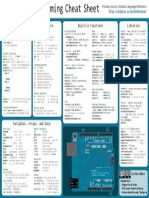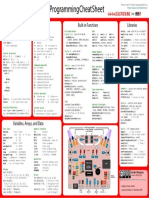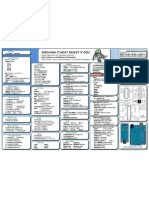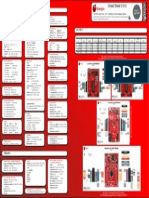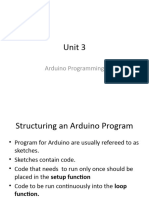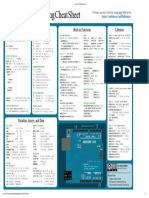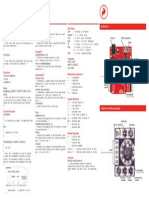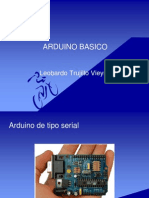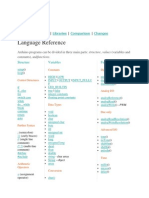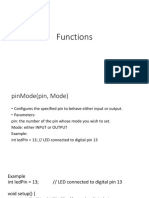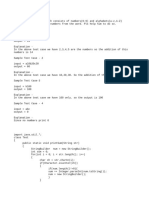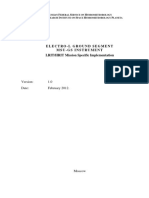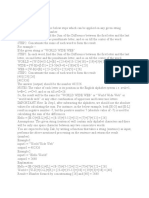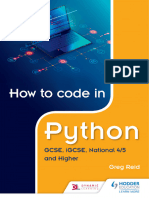0% found this document useful (0 votes)
30 views2 pages3A Programming Cheat Sheet V2
This document provides a crib sheet summarizing key concepts in Arduino programming including data types, control structures, functions, digital and analog I/O, timers, interrupts, serial communication, and the servo library. It defines common operators, constants, and math functions. It also outlines how to manipulate ports, use random numbers, work with bits and bytes, and debounce buttons using interrupts.
Uploaded by
veekaprogrammingCopyright
© © All Rights Reserved
We take content rights seriously. If you suspect this is your content, claim it here.
Available Formats
Download as PDF, TXT or read online on Scribd
0% found this document useful (0 votes)
30 views2 pages3A Programming Cheat Sheet V2
This document provides a crib sheet summarizing key concepts in Arduino programming including data types, control structures, functions, digital and analog I/O, timers, interrupts, serial communication, and the servo library. It defines common operators, constants, and math functions. It also outlines how to manipulate ports, use random numbers, work with bits and bytes, and debounce buttons using interrupts.
Uploaded by
veekaprogrammingCopyright
© © All Rights Reserved
We take content rights seriously. If you suspect this is your content, claim it here.
Available Formats
Download as PDF, TXT or read online on Scribd
/ 2




